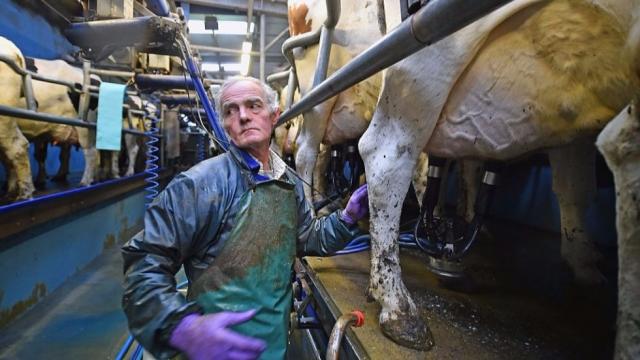The Hill: Protect rural communities and small farmers, not big polluters
By Sherri Dugger, opinion contributor | 03/20/18
There are nearly 2 million small family farms in America, but that’s not where most of our food comes from. Just 7 percent of all farms produce 80 percent of the food in the country, and they’re nothing like the idyllic farms you see pictured on food labels. These are huge, industrial operations, and in addition to mass-producing grains and meat, they are responsible for making agriculture one of the most polluting industries in the country.
When a family is sickened by fumes from a hog farm, chances are the toxic pollution comes from a large, industrial agricultural operation — not one of the millions of small, family-owned farms. But whenever rural residents rise up to demand protection, these big polluters hide behind small farmers — like me. And Congress buys it every time.
This month, the Senate is considering a bundle of bills called the ACRE Act, which cobbles together a number of industry-backed efforts to hide agricultural pollution from the public. ACRE would gut Clean Water Act permitting for pesticides applied directly to our waterways. It would give all industrial livestock facilities — no matter how big — a free pass from reporting their pollution to the EPA. By lumping industrial operations together with small farms, the ACRE Act lets big polluters operate in secret, and leaves rural communities to pay the price.
The agricultural industry has often evaded pollution reporting requirements because of the outdated perception that agriculture is the domain of small family farmers, and not an industry dominated by giants. But an industrial livestock operation is more factory than farm; it’s nothing like the place I and so many of my colleagues run. Indeed, a recent report by the Inspector General of the Small Business Administration just reported that the big integrated poultry producers so tightly control those running supposedly independent chicken raising operations that they cannot be viewed as separate.
These enormous industrial scale operations can confine thousands of cattle, tens of thousands of swine, or even as many as 3 million chickens in a single facility. These are not family farms that can safely and sustainably use the manure as fertilizer. They can produce more waste than an average city. And unlike city sewage that is treated carefully in wastewater plants, this manure is often just stored in huge open pits and then sprayed onto fields.
The manure releases ammonia and hydrogen sulfide, which irritate the eyes and lungs. Prolonged exposure to ammonia burns lung tissue, and the long-term effects of hydrogen sulfide include memory loss, poor motor function and decreased attention span. People who live near industrial hog farms complain of odors so foul they can’t go outside, often experiencing headaches, nausea and trouble breathing. On two separate occasions in 2015, father and son hog producers in the Midwest were overcome by fumes from a manure pit and died.
Fortunately, the majority of food producers are not giant, polluting operations. According to an Earthjustice analysis of USDA data, 96 percent of cattle producers and more than two-thirds of poultry and swine producers nationwide are small producers. The pattern is similar across the entire agricultural industry — small producers are in the majority, while large operations are small in number but produce most of the pollution.
If congressional leaders really want to protect rural communities and small farmers, they could exempt only small farms from EPA pollution reporting requirements. In the case of livestock, if only “medium and large” concentrated animal feeding operations, as defined by the EPA, were required to report their toxic air emissions, the vast majority of producers in every state would be relieved of reporting. At the same time, those few reports that would have to be submitted would cover the majority of emissions and give rural communities the information they need to protect themselves.
It’s high time for Congress to recognize the difference between America’s millions of small family farms and the huge, industrial facilities whose pollution is putting the health of rural communities at risk. The industrial backers of the ACRE Act are using small farmers as political cover. Congress should see through this ruse and treat the big players for what they are — industrial polluters that shouldn’t have a free pass to pollute the air we breathe, the water we drink and the land we need to support us all.
